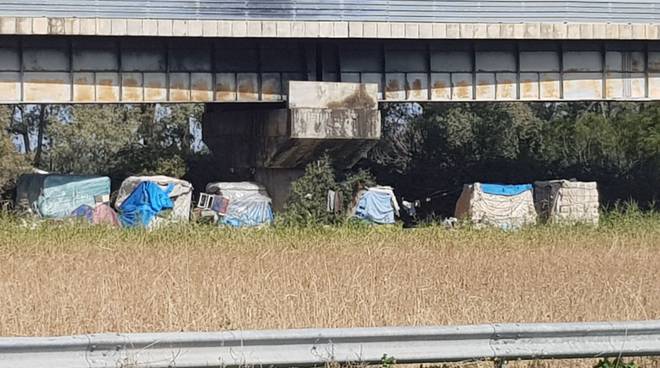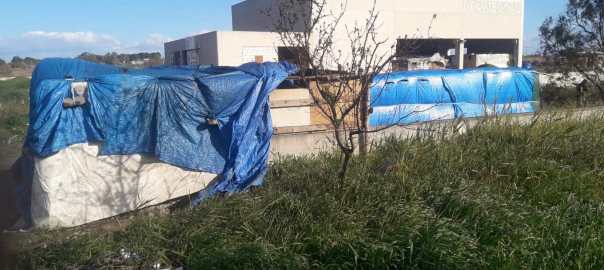Two days ago, the mayor of Bernalda, Domenico Tataranno, officially announced the imminent eviction of the migrant ocupation La Felandina, located in the industrial zone of Metaponto. The building has been occupied since a year by approximately 600 migrant workers, a majority of which are in possession of regular residence papers, according to official police sources. The migrants offer their labour to agricultural enterprises in the area. Since a few years the Basilicata and Calabria coastline has effectively become Southern Italy’s grocery garden: from the famous strawberries harvested in early Spring to the fruit and vegetables that are cultivated here over the Summer and Autumn, production continues throughout the year. Farmers sell their produce under often unfavourable contracts to the big distribution networks through intermediaries located in Puglia and Campania.
Speaking at a public meeting, the mayor said he took his decision after a long series of meetings with the Prefecture, Town Hall, and competent authorities – notwithstanding the acknowledgement, by the territiorial prefecture, that migrant workers who come to the area have difficulty finding alternative forms of accommodation. “It will be up to the State, through the security forces, to implement the eviction in practice. We will try, with the collaboration of those poor people, to find the best solution from a logistic point of view,” Tataranno concluded.
In March this year, the head of Basilicata’s Migrant Policy Coordination, Pietro Simonetti officially promised a temporary reception facility for 150 seasonal migrant workers, which so far has not been concretely defined. In the meantime, therefore, migrant workers have no other alternative other than occupying a new site.

It is not the first time it comes to such tensions in the area of Metaponto. Already in 2018, the mayor of Bernalda ordered the clearance of various tent camps located under the town’s bridges and in the many abandoned warehouses in the area. Like much of Basilicata, the area continues to be affected by a progressive abandonment, driven by a lack of institutional capacities and employment opportunities. Specifically, the 2018 eviction followed an open letter in which Metaponto’s residents denounced the, in their view, “disproportionate” presence of immigrant citizens who come to the area to work. Declaring a state of emergency, they asked the mayor to restore law and order in the area.
The same year, two agricultural entrepreneurs and one gangmaster based in Metaponto had been officially indighted for illicit labour recruitment, which has become an offence under the new anti-racket legislation. Altogether, these events reveal once more the paradox of the current legislative context, which regards migrant labour intermediation as a criminal offense, but at the same time refuses to address its root causes beyond a mere logistical perspective.

